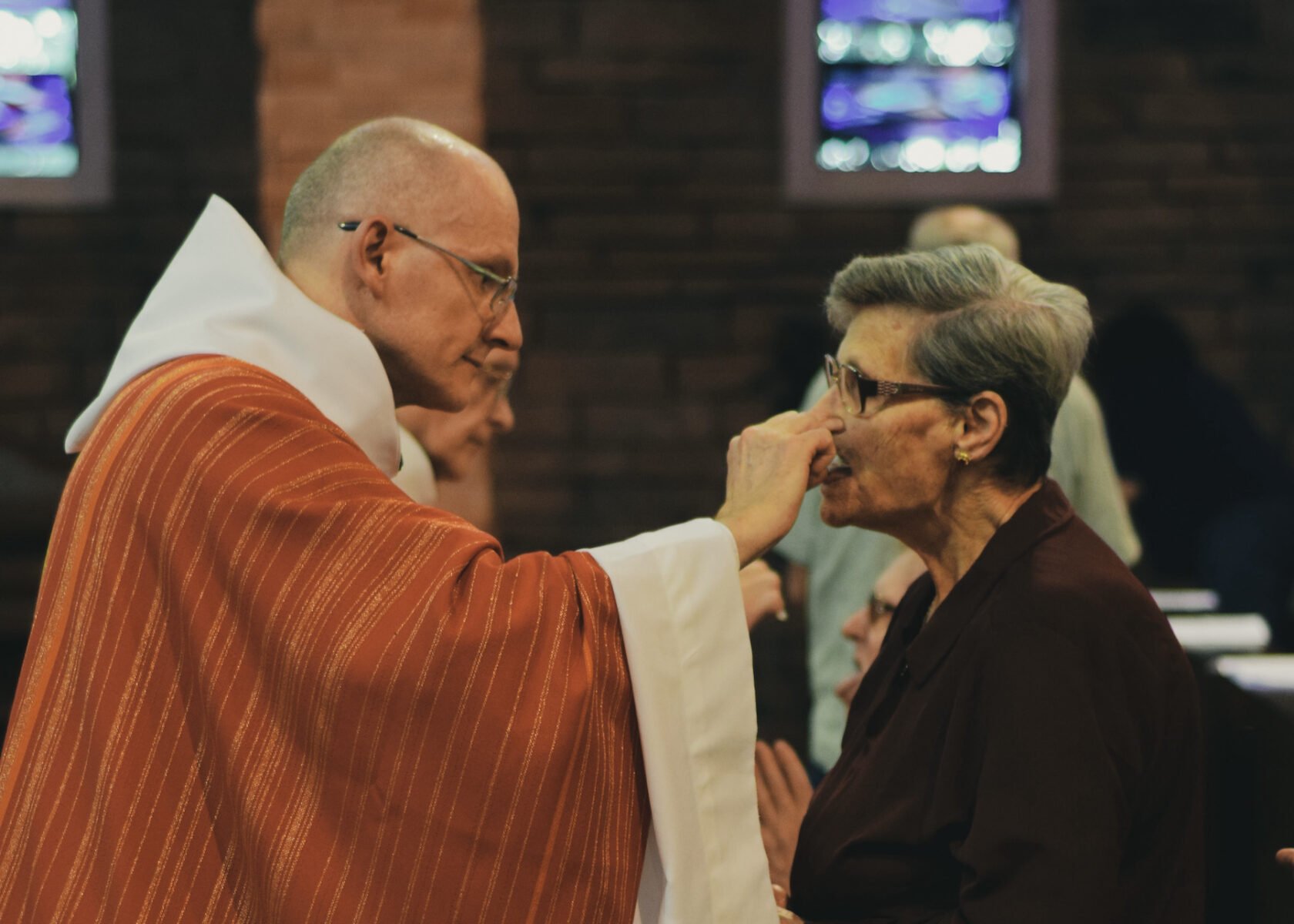The Eucharist is the heart and the summit of the Church’s life, for in it Christ associates his Church and all her members with his sacrifice of praise and thanksgiving offered on the cross to his Father; by this sacrifice he pours out the graces of salvation on his Body which is the Church.
Jesus said: “I am the living bread that came down from heaven; if any one eats of this bread, he will live for ever;… he who eats my flesh and drinks my blood has eternal life and… abides in me, and I in him”
John 6:51.54.56
The Eucharistic celebration always includes several elements that constitute on single act of worship:
- the proclamation of the Word of God
- thanksgiving to God the Father for all his benefits, above all the gift of his Son
- the consecration of bread and wine
- participation in the liturgical banquet
The Eucharist is the memorial of Christ’s Passover – the work of salvation accomplished by the life, death, and resurrection of Christ, a work made present by the liturgical action. It is Christ himself, the eternal high priest of the New Covenant who, acting through the ministry of the priests, offers the Eucharistic sacrifice. And it is the same Christ, present under the species of bread and wine, who is the offering of the Eucharistic sacrifice.
The essential signs of the Eucharistic sacrament are wheat bread and grape wine, on which the blessing of the Holy Spirit is invoked and the priest pronounces the words of consecration spoken by Jesus during the Last Supper. By the consecration the transubstantiation of the bread and wine into the Body and Blood of Christ is brought about. Under the consecrated species of bread and wine Christ himself, living and glorious, is present in a true, realm and substantial manner.
Communion with the Body and Blood of Christ increases union with the Lord, forgives venial sins, and preserves from grave sins. Since receiving this sacrament strengthens the bonds of charity between the communicant and Christ, it also reinforces the unity of the Church as the Mystical Body of Christ.
For information on the celebration of the sacrament of the Eucharist, visit this page.
For information on the adoration of Christ in the Blessed Sacrament as an expression of gratitude and love, visit this page.


